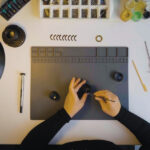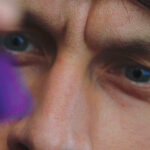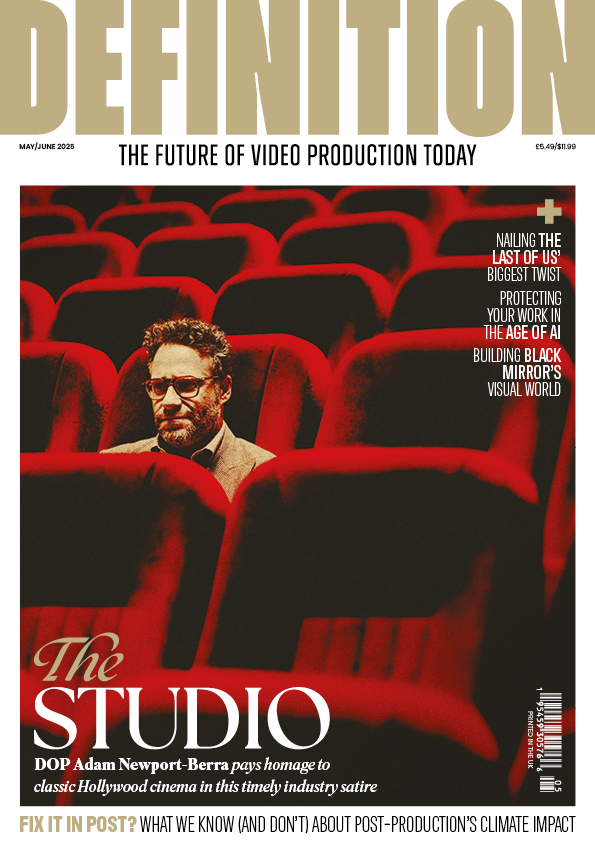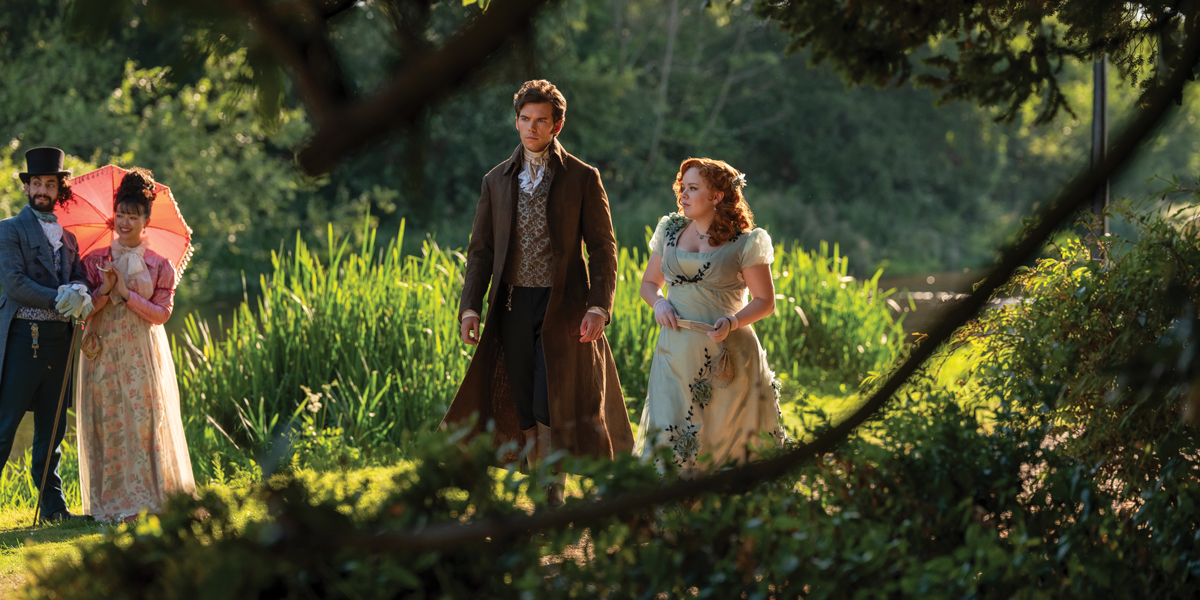
Rewriting the rules: Bridgerton
Posted on Aug 1, 2024 by Katie Kasperson
Rewriting the Rules
Bridgerton’s costume designers explain how they blended historical accuracy with romantic fantasy on the Netflix hit
Words Katie Kasperson Images Netflix
Escapism is the name of the game when it comes to bingeable television, and few shows are more fantastical than Bridgerton, a Regency-era romance set to remixed pop music, with characters clad in occasionally scandalous and often outlandish outfits. Creating these enormously detailed ensembles was a formidable task for costume designers John Glaser, Dougie Hawkes and George Sayer, who developed the show’s one-of-a-kind style from the ground up.
Starting from scratch
Because Bridgerton’s costumes break away from restrictions of historical accuracy, ‘there wasn’t the stock anywhere to hire’, recounts Sayer, meaning each piece was brand new.
“We had nothing, so we made everything – we threw the kitchen sink at it,” says Glaser. “If we made men’s coats, we made them in every colour. Eventually, we learnt what worked and what didn’t, but in the beginning we had everything in the mix.” Besides avoiding ladies’ bonnets and vintage fabrics, there were no hard-and-fast rules.
“It’s such a distinct look,” notes Sayer, with the women wearing embellished Empire-line gowns and the men in fitted wool jackets and flowy white shirts.
Glaser argues that the series ‘is not a history lesson’, which allows the designers plenty of breathing room. “The male body has changed from that period, and now they’re much more muscular, so we’ve adapted it,” he states. “It’s about what looks pretty, what looks romantic, what works for the characters. It’s a fantasy.”
Hawkes also explains that “fashions swap their looks over the centuries. You could probably find anything from any period if you look hard enough.”
“When we do our research, we look at everything because you can always find a Regency influence in the fifties, in the thirties, in the 1900s and today,” Glaser echoes. “We still have a waist, a chest, legs – things can’t change that much. We follow the basics, but we put it in a lot of stereo systems and electric windows – we’re pimping it out basically,” he laughs. “We pimp out the period.”
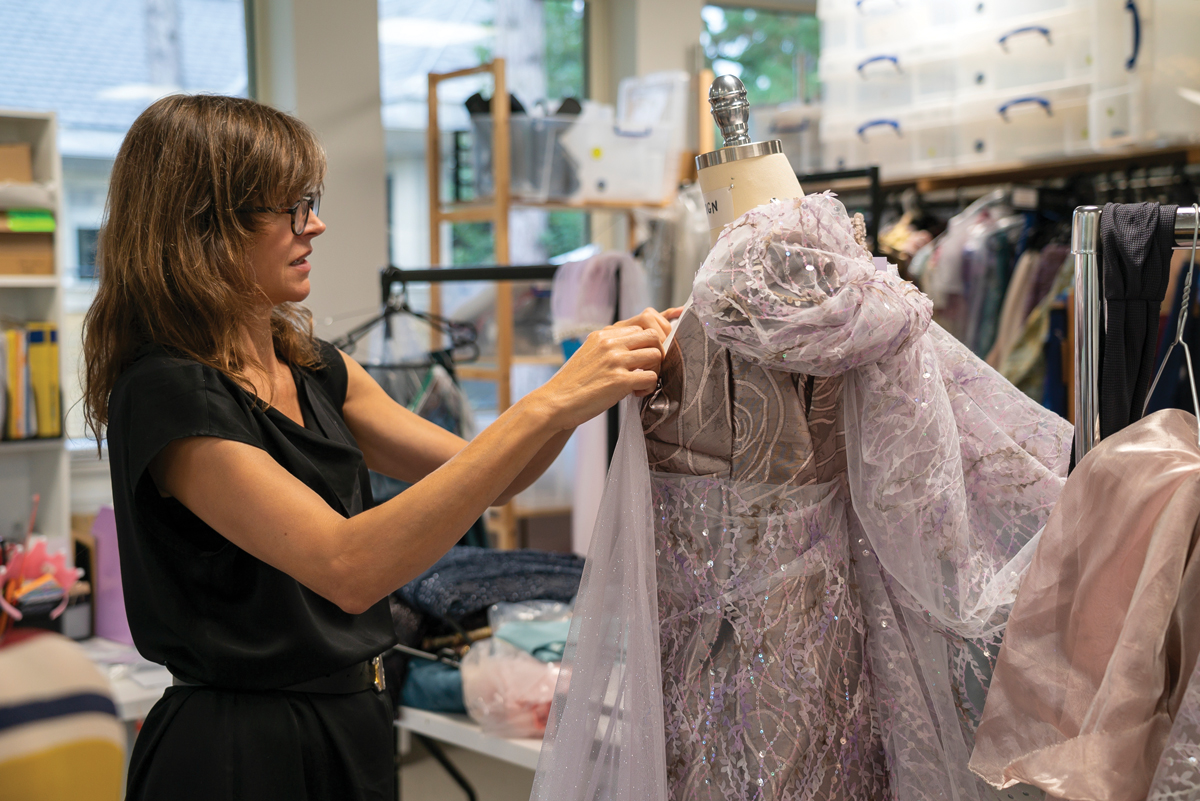
A family affair
The Bridgertons are the show’s titular family, so naturally they needed a cohesive look that would set them apart among London’s high society. “The Bridgertons became the Tiffany and Kennedy family, and wear blues,” says Glaser – a refined, muted palette that reflects their nobility. Conversely, the Featheringtons – who come from new money – “became the citrus family and the Versace family,” wearing more colourful, gaudy garments that represent their relative social alienation. “That helps the audience remember which family people are in,” explains Glaser, “but by Season 3, I felt that the audience knew the characters, so we could mix up their colour palettes.”
While Seasons 1 and 2 centre around the characters of Daphne and Anthony Bridgerton, respectively, the latest season puts Penelope Featherington (aka the anonymous town gossip, Lady Whistledown) and Colin Bridgerton in the spotlight. Looking to find a husband in her third year on the marriage mart, Penelope employs a whole new look – one that’s more mature, mysterious and, importantly, flattering. A departure from her usual neon wardrobe, she sports an emerald green dress to Lady Danbury’s ball – and the ton takes notice.
“She wants to stop being under the influence of her mother, so her first dress goes far away from anything she’s ever worn,” describes Glaser. While Penelope’s new gown initially attracts some male attention, it also compels mean girl Cressida Cowper to tear the fabric, humiliating Penelope and sending her back to wallflower status.
“With the emerald green dress, she was going all out to be as different as possible. That all went horribly wrong for her, so it’s getting her back into her comfort zone,” says Sayer of Penelope’s later outfits, which are not only more neutral but also more like Cressida and Eloise Bridgerton’s (Penelope’s former best friend).
“She can still move in and out of the Bridgerton world, the Featherington world, Colin’s world, Cressida’s world,” shares Glaser. “They have matured as characters and the story has matured; it doesn’t have to be so Disney. If we used those strong citrus colours throughout, it would be exhausting for the audience to keep looking at them and would take away from her character development,” Glaser concludes.
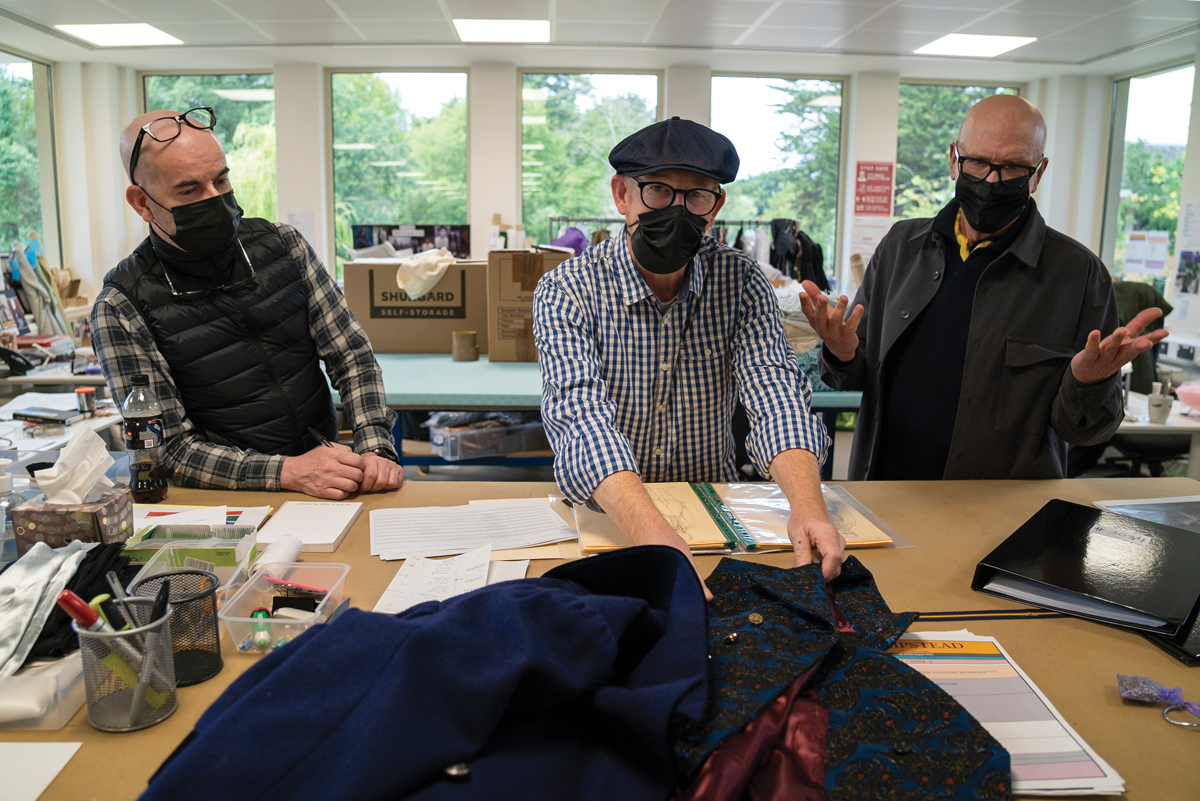
Keeping stock
Bridgerton’s ensemble cast – not to mention its countless extras – warrants hundreds of individual costumes, which can take several weeks to create. In Season 1, “Daphne had well over 100 dresses,” recalls Sayer. “It’s reduced slightly from that now; the story days tend to be longer, so the changes tend to be reduced.” Glaser estimates about 40 changes per actor in Season 3.
While the designers originally created each item from scratch, principal pieces are now regularly reused. “They are stripped down to their basic elements, and then redecorated and reworked,” reveals Glaser. “I say that, but some people will know when a dress was already worn.”
“People recognise some of them for sure,” agrees Sayer. “We use the odd key piece, but with womenswear, we like to create new dresses each season. We may use a simple dress as a base layer.”
Hawkes treats each season as a trial-and-error experience. “You realise from one season to another that it either works or doesn’t work,” he states. “The next season is about building a smaller stock to add to that – otherwise it would be huge.”
Sometimes costumes can’t be reused – for instance, if they get muddy. “The dresses from Seasons 1 and 2 are long, they’re worn on the ground and have trains; they get pretty much destroyed,” mentions Glaser. “When you look at 1820, the hemlines rise; that gives us a reason to get rid of the dirty bottoms. History has been kind to us; the weather hasn’t.”
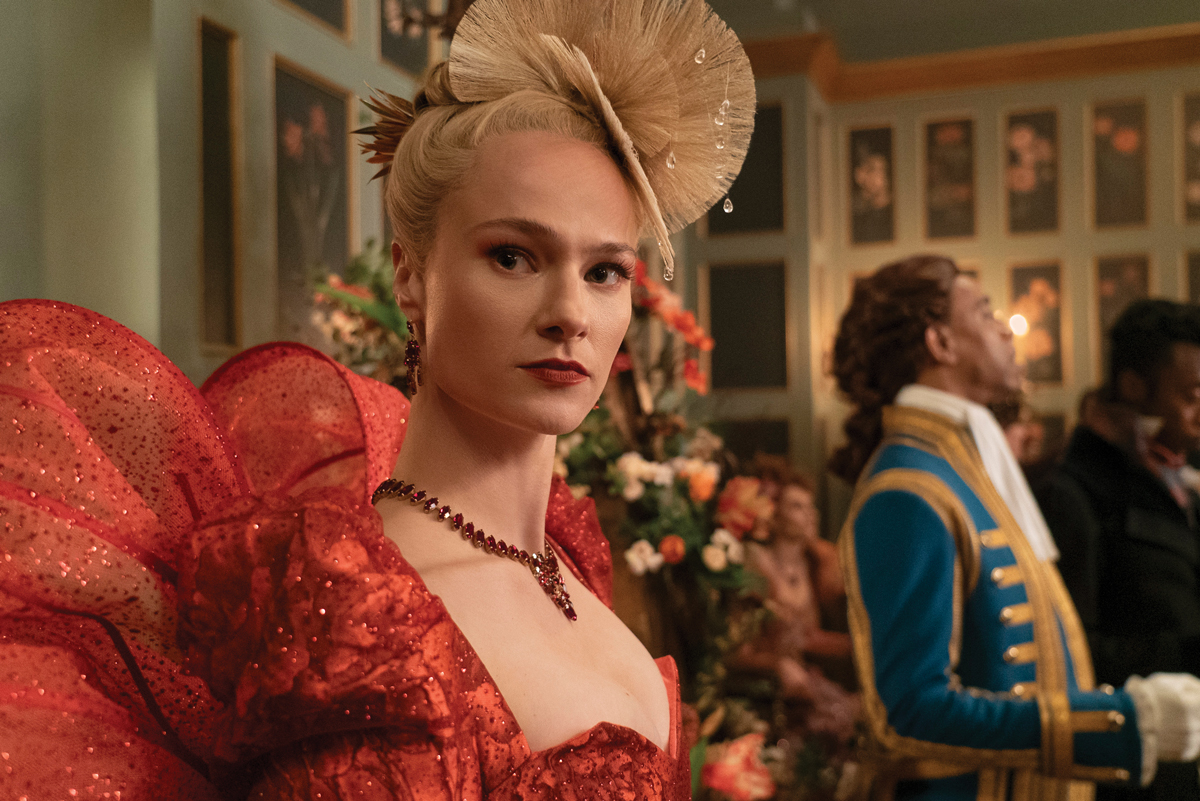
Play hard
The costume department has obvious chemistry, not only with each other but also with the cast. “There is an element of fun,” admits Hawkes. “There has to be, and I hope that there always will be. That’s what makes it a little bit special.”
“It’s a happy team,” Sayer concurs. “We’ve got a good relationship with the cast, so fittings are happy, and we don’t have any muddy battle scenes in Season 3, so that’s always a bonus.”
Glaser stresses that his job is to help enhance the story rather than do the telling. “We’re not precious about certain things: our job is to make it look beautiful.”
“It’s easy to compare it to Shakespeare,” Hawkes jests. “He was always able to balance the fun with the seriousness. There’s a real serious side to Bridgerton, a real sexy side to Bridgerton, but there’s also a humorous side.”
Rather than copying Shakespeare or Austen, Bridgerton breaks away from ‘restrictive period rules’, reiterates Glaser. “That allowed the actors to think about their characters in a different way. They weren’t so confined.”
“We’re designing things that haven’t been seen,” remarks Hawkes. “We’re not recreating history.”
“There’s a basis of the Regency period, but we are not too precious about that,” concludes Glaser. “Everything has been adapted – ‘Bridger-tised’.”
Bridgerton Season 3 is now streaming on Netflix.
This feature was first published in the August 2024 issue of Definition.

